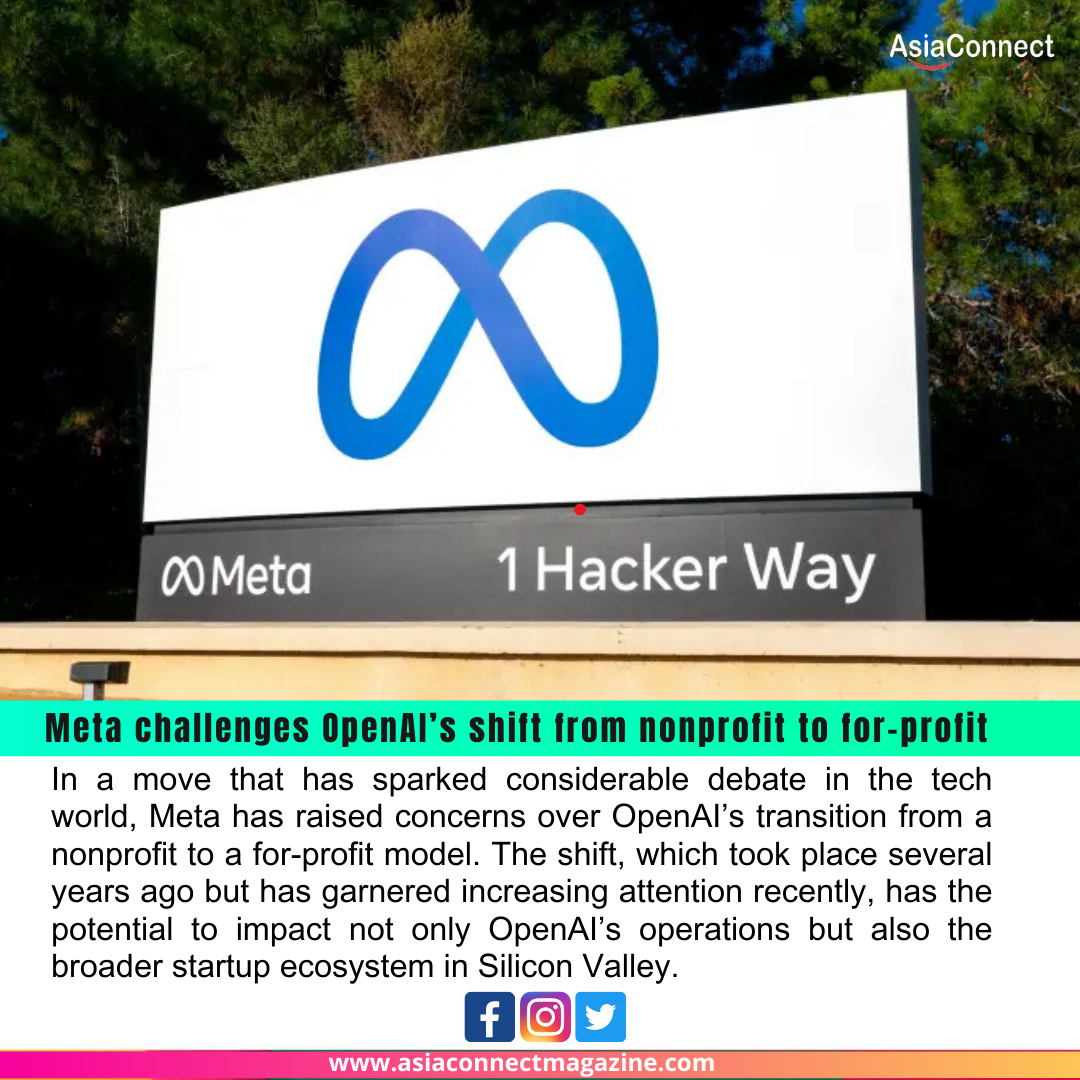In a move that has sparked considerable debate in the tech world, Meta has raised concerns over OpenAI’s transition from a nonprofit to a for-profit model. The shift, which took place several years ago but has garnered increasing attention recently, has the potential to impact not only OpenAI’s operations but also the broader startup ecosystem in Silicon Valley. Meta’s criticism points to the changing dynamics within the tech industry and the implications of prioritizing profit over the original mission of democratizing AI technology.
The Nonprofit-to-For-Profit Shift at OpenAI
OpenAI was originally founded in 2015 by prominent figures like Elon Musk, Sam Altman, and Greg Brockman with the mission of advancing artificial intelligence for the benefit of humanity. As a nonprofit organization, OpenAI was focused on ensuring that AI technology would remain open and accessible, avoiding the potential monopolization of AI by large corporations. This approach aligned with broader concerns about the ethical development of AI and its long-term societal impact.
However, in 2019, OpenAI made a significant change, forming a for-profit entity, OpenAI LP, under its parent nonprofit organization, OpenAI Inc. This shift allowed the company to pursue more aggressive funding strategies, including partnerships with big tech firms like Microsoft. OpenAI’s decision to raise capital in this way was driven by the significant cost of developing advanced AI systems like GPT (Generative Pretrained Transformer), which required substantial investment to compete with other AI pioneers.
While the transition has allowed OpenAI to access funding at a scale that would not have been possible under its nonprofit structure, it has also raised questions about whether the organization’s mission to ensure AI is developed for the greater good is being sidelined in favor of financial gain.
Meta’s Concerns and the Impact on the Startup Ecosystem
Meta’s critique of OpenAI’s shift highlights a growing concern in the Silicon Valley tech ecosystem: the commercialization of AI could harm the spirit of innovation and accessibility in the sector. Meta, itself a major player in AI development, argues that OpenAI’s pivot could set a precedent for other AI startups, pushing them toward prioritizing profits over ethical considerations and public good.
Meta’s concerns are based on the idea that the shift to a for-profit model might discourage the free flow of information and collaboration that has traditionally fueled innovation in the tech sector. As AI development becomes increasingly dominated by major corporations with deep pockets, smaller startups may struggle to compete for funding or access to AI research and resources. This could stifle creativity and limit opportunities for innovation in the field.
Additionally, Meta fears that the commercial pressure on companies like OpenAI could lead to the concentration of AI capabilities in the hands of a few large corporations. As AI becomes more powerful and influential, the ability to control its development could have wide-ranging implications for society, including potential biases in AI models, increased surveillance, and the monopolization of crucial technology.
OpenAI’s Response and the Future of AI Development
OpenAI, for its part, has defended its decision, arguing that the for-profit model allows it to attract the capital necessary to fund cutting-edge AI research. The organization also maintains that its mission remains focused on ensuring the benefits of AI are broadly shared. However, this debate raises important questions about the balance between commercial interests and societal impact in AI development.
As OpenAI continues to make strides with its technologies, such as the GPT-3 model and other advanced AI tools, the challenge for both startups and established tech firms will be to ensure that AI remains a force for good while navigating the pressures of commercialization.
Conclusion
Meta’s challenge to OpenAI’s shift from nonprofit to for-profit underscores the tension between innovation and commercialization in Silicon Valley’s fast-evolving tech landscape. As AI becomes an increasingly central part of the global economy, the ethical and financial questions surrounding its development will continue to shape the future of the industry. For startups, the choice between securing funding and staying true to the original mission will be a defining issue in the years ahead. As the industry grows, the balance between profit motives and public good will be critical in determining how AI technologies will impact society.





